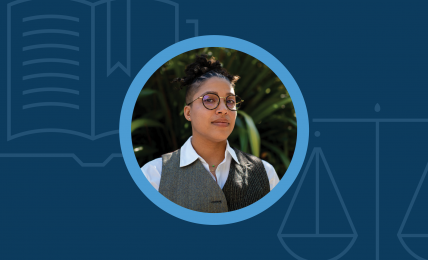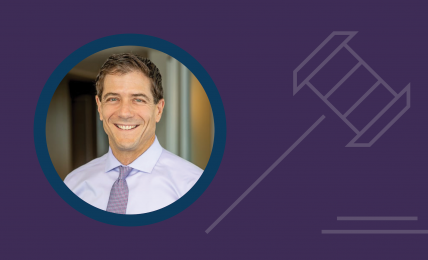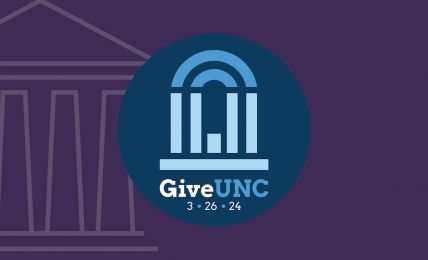By Michele Lynn

Public service is central to the life and career of Tony Cummings ‘87. Raised by a school teacher mother and a father who served as a career Army soldier before becoming a preacher, Cummings was taught from a young age that he had a duty to help the community and mentor others. This devotion to service has culminated in his current position as Deputy Assistant Administrator for Civil Rights at the Federal Aviation Administration (FAA). In this position, Cummings is focused on ensuring diversity, equity, inclusion, and accessibility in the nation’s skies.
His legal work in public service began with his first job out of law school, as an attorney with the U.S. Navy Judge Advocate General (JAG) Corps. “The Navy gave me expert training in trial advocacy, and I learned how to navigate a courtroom,” he says. After three years of military service, Cummings joined civilian service as an Attorney-Advisor with the Social Security Administration, researching and writing decisions for administrative law judges. This was followed by his longest-serving role, as an Administrative Judge with the U.S. Merit Systems Protection Board, which Cummings describes as the federal sector’s employment law court.
“During my nearly 25 years with the Board, I honed my expertise in employment law and leadership,” says Cummings. “I thrived in that position but with my desire to become a senior executive—the top tier of civil servants—and then have the opportunity to work directly with presidential appointees, I decided to step outside of my comfort zone and leave my job.” That decision led to Cummings gaining senior executive positions at the U.S. Department of Housing and Urban Development and the U.S. Department of Education.
In January 2022, he assumed his current executive role at the FAA where he is responsible for equity, inclusion, diversity, accessibility, civil rights, equal employment opportunity and equal opportunity precepts for the more than 47,000 employees and recipients of FAA-sponsored federal assistance. Throughout its history, the FAA has been staffed predominantly with white men, a homogeneity that is being addressed through the agency’s strategic plan that focuses on opening the doors of aviation to underserved communities. Cummings is dedicated to ensuring that the ranks of air traffic controllers, pilots, aviation safety personnel and airport concessionaires and contractors expand to include women, people of color, and those from different walks of life.
Cummings says that his role is perfect because it allows him to focus on civil rights, the area of law which motivated him to become a lawyer. When he was in eighth grade, his mom asked him what he wanted to do with his life. “I told her I wanted to be a lawyer because I knew that they helped people,” he says. “I was always inspired by Dr. Martin Luther King, Jr., Thurgood Marshall, and other icons in the Civil Rights Movement, many of whom had law degrees.”
Spending most of his childhood in segregated Fayetteville, N.C. also served as an impetus for Cummings to pursue a career in civil rights law. “I grew up under a cloud of racism, although my parents and my community nurtured me to believe that I could do anything I set my mind to,” he says. “But under the shadow of discrimination, I had experiences which were quite blistering.”
Addressing issues of discrimination was an important part of Cummings’ student experience at UNC, both as an undergrad and a law student, as he participated in protests on behalf of better rights for UNC cafeteria workers, custodians, and African American professors.
“One wonderful thing about UNC-Chapel Hill is that people listened to our voices and we had the opportunity to exercise our First Amendment rights. Studying at an elite public university, attending Carolina Law, and advocating for the underserved while at UNC prepared me for the career I’ve taken on.”
Tony Cummings ’87
Cummings’ advice for those interested in a career in civil rights: believe in yourself; believe that you belong; and believe in the rights of all people. “It’s important to treat others in the way that you want to be treated,” he says. “I believe that what you put out in the world, you get back.”
“I am blessed to have the opportunity to fight the good fight and have an impact within the sphere I have been given,” he says. “Like John Lewis said, I want to make good trouble.”



